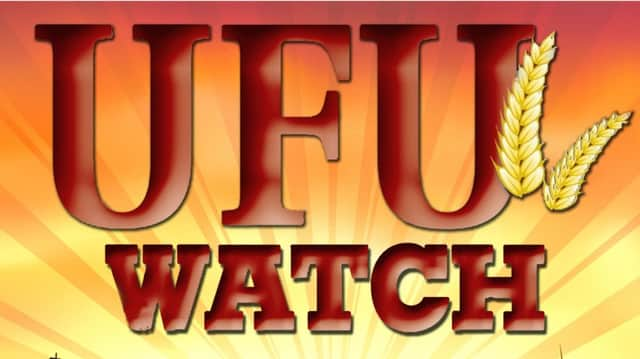Greater access to the distribution network in Northern Ireland


This is recognition by the DNO that they need to plan for a future with increasing demand levels on the distribution system through the electrification of heat, transport and data centres, as well as increasing levels of renewable energy.
NIE Networks have also significantly acknowledged two key areas, which need to be considered and these have been central tenets of UFU policy over the last decade:
Advertisement
Advertisement
• Energy storage technology is rapidly improving and its use growing accordingly.
• More consumers now have the ability to produce their own electricity;
In their assessment, NIE Networks have identified “prosumers”, which is the name for customers, who use and produce electricity in their homes and businesses. These are the very interests that the UFU Rural Enterprise Policy Committee are representing, namely farm-based small scale renewable generators; wind turbines, solar PV units, AD plants etc who are producing renewable energy which in turn in most instances is used in their farm businesses.
Such collective technology is referred to as Distributed Generation, and over the last decade, we have seen rapid growth, which has in turn led to problems on the electricity grid, namely significant capacity constraints which have been prevalent during this time.
Advertisement
Advertisement
In both RP5 and RP6 consultations, the UFU suggested alternative solutions to conventional reinforcement (which is recognised as being expensive) and up until now, been mostly unrecognised by the relevant authorities.
The UFU are encouraged by and welcome the fact that NIE Networks are developing plans for this new energy future. In this call for evidence, they have identified functions that may require change. By recognising that “prosumers” are part of the solution going forward, it is going a long way towards developing a new energy policy, which incorporates the small-scale renewable generation being provided by our members.
As part of our response, we will again be calling for all key decision makers to acknowledge the role of agriculture in energy production. DAERA for example, have refused to date, to look beyond conventional food policy. Namely such landowners should be looked upon as energy producers as well as that of food. As recently as June 2015, we wrote to the then Agriculture Minister urging that Department could facilitate the selling of on-farm produced renewable energy.
One of the failings of the renewable policy in Northern Ireland has been the lack of integration, with, to date, no policy pursuing the development of the storage of excess generated energy.
Advertisement
Advertisement
Whilst the UFU has called for the development of conventional battery storage solutions, we have also recently called for research to be advanced into ways that energy could be stored organically as this could be facilitated by the use of locally grown crops. This has been set out in previous Commodity Watch articles.
The new direction set out by NIE Networks needs to maintain momentum and go further. Namely, there needs to be a move from a supply-side infrastructure to “the other side of the metre”, in other words, a bottom up approach. This would go a long way towards bringing about the integration of distributed generation sources and work towards allowing the ability to “switch-on” controllable site-loads. For example, specific policy suggestions are;
• Local Supply – Where a local farm could produce renewable electricity via wind turbine/AD unit/solar PV and sell it to nearby businesses. This would benefit the wider rural economy and improve energy efficiency.
• Zero-Net Energy - This is where the renewable energy produced on a farm meets the exact needs of the business, with no spill or wastage.
Advertisement
Advertisement
Local supply/zero-net energy will only be possible if on-farm energy storage solutions are advanced and this call for evidence is a much welcomed and needed step in the right direction towards achieving these policy goals and this will form the basis of the UFU response.
NIE Networks will be holding a workshop on the call for evidence. The workshop will be held at the Crowne Plaza Hotel, Belfast on September 14th.